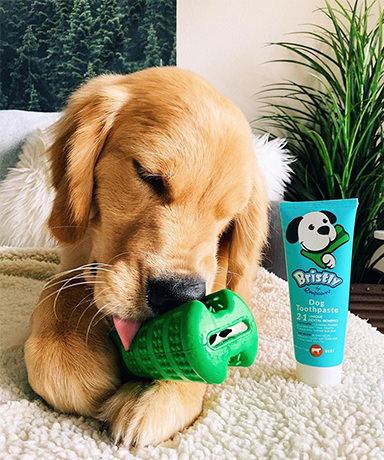Your Cart is Empty

Time to make your inbox pawsome
Sign up today and get 10% OFF your first purchase!


Picture this: you come home from work and you're greeted with a pile of vomit and your pup is laying in his bed, not bothering to come greet you after a long day. It could be stomach issues again, but what if he got into something he shouldn't like cleaning supplies or human food? Every pet owner should be prepared to handle the emergency situation of if their pet is poisoned.
The third week in March is National Poison Prevention week, so we've rounded up the most common household items that are toxic to dogs, the signs and symptoms of poisoning, and the steps to take if your pet does ingest a toxin so that you can keep your furry friend safe. Read on for more:
Dangerous Substances for Dogs
There are products all around your house that, unless you're careful, can cause some serious harm to your four-legged friend. Here are a few categories of common household items that are toxic to dogs:
If your dog is exhibiting any of the above symptoms after ingesting a potentially harmful substance, it is in your dog's best interest to contact your veterinarian right away.
The vet will probably ask you to bring your dog in, depending on the severity of the symptoms. It is always a good idea to being in the substance that your dog ingested, if you know what it is, especially if it contains chemicals like fertilizer or a cleaning product.
The vet may also ask you to give your pup medicine, fluids to dilute the poison, or something to help it go through your dog's system. Do not take these steps unless you have the advice of a veterinary professional.
Taking these steps without the advice of a vet may cause your pet to become further hurt. In the event that you cannot reach an emergency vet if your pet is poisoned, there are several hotlines available:
